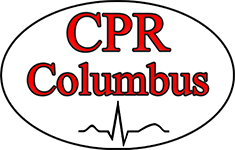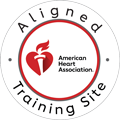Life-saving skills are invaluable assets that equip individuals to respond effectively in times of crisis. Among these, CPR (Cardiopulmonary Resuscitation) stands out as a critical intervention that can mean the difference between life and death. This article delves into the significance of CPR training for parents, accentuating its relevance in handling medical emergencies involving children. By imparting CPR skills to parents, families can augment their preparedness and efficacy in responding to unforeseen crises.
Emergencies are inherently unpredictable and can happen at any moment, particularly within the confines of one’s home. From accidental injuries to abrupt cardiac arrests and choking incidents, parents must be primed to act swiftly in moments of crisis. Time is of the essence in saving lives, as emergency services may take precious minutes to arrive on the scene. Bystanders adept in CPR can initiate immediate care, substantially increasing the likelihood of survival for the affected individual.
Statistics underscore the effectiveness of CPR in preserving lives, with survival rates witnessing a notable increase when CPR is administered promptly. Early intervention serves as a linchpin in optimizing the prospects of a favorable outcome in cardiac emergencies.
Understanding CPR
CPR is a life-saving technique engineered to reinstate blood circulation and sustain oxygen flow to vital organs in individuals grappling with cardiac arrest or respiratory failure. Foundational CPR techniques encompass chest compressions to facilitate blood circulation and rescue breaths to furnish oxygenation. In certain scenarios, the utilization of an automated external defibrillator (AED) may be imperative to restore normal heart rhythm. CPR certification and training courses are readily accessible through diverse organizations, offering a gamut of learning avenues ranging from online platforms to in-person sessions tailored to accommodate varied learning proclivities and schedules.
CPR for Children: Special Considerations
Pediatric CPR presents distinct challenges due to variances in anatomy and physiology vis-à-vis adults. Parents must acquaint themselves with child-specific CPR techniques tailored to infants, toddlers, and school-age children. Tailoring CPR skills to suit different age brackets ensures judicious care provision and augments the efficacy of resuscitation endeavors in pediatric emergencies.
Call Us Now
Get the Best CPR Class in Columbus Today!
Acquiring CPR proficiency empowers parents to respond promptly to family emergencies, creating a secure home and amplifying overall family safety. Mastery of CPR skills instills parents with confidence, fortifying their capacity to navigate crises adeptly and take decisive action when exigencies arise. By modeling preparedness for their children, parents laid the groundwork for safety and readiness within the family unit.
Overcoming Common Barriers to Learning CPR
Time constraints and packed schedules may discourage parents from pursuing CPR training. Nevertheless, the proliferation of flexible course formats, encompassing online modules and condensed sessions, facilitates seamless integration of training into their routines. Financial constraints need not serve as impediments to CPR education, as numerous organizations extend affordable or complimentary training opportunities to parents. Overcoming apprehension and dread associated with emergencies is achievable through CPR training, which furnishes practical skills and knowledge indispensable for confronting crises with poise and efficacy.
Resources for Parents to Learn CPR
CPR training centers and healthcare facilities proffer comprehensive courses and certifications custom-tailored to cater to parents and caregivers. Online platforms provide convenient access to CPR training modules and certifications, allowing parents to learn at their own pace from the comforts of home. Community workshops and events frequently feature CPR training sessions, furnishing attendees with hands-on practice opportunities and avenues for networking with fellow parents.
CPR training is an imperative life skill that warrants prioritization among parents, given its potential to serve as a lifeline in moments of crisis and fortify familial safety. Parents should proactively seek CPR training, recognizing that their readiness to respond can profoundly impact emergent situations. By investing in CPR education, parents not only safeguard the well-being of their families but also contribute to fostering a safer and more resilient community at large.
In conclusion, acquiring CPR skills is beneficial and crucial for every parent. The ability to perform CPR can mean the difference between life and death in emergencies involving loved ones. With CPR Columbus, an American Heart Association training site, offering comprehensive courses including CPR certification in Columbus and BLS certification in Columbus, parents have the opportunity to equip themselves with life-saving skills. These courses, designed to be stress-free and hands-on, ensure that parents gain the confidence and proficiency needed to respond effectively in critical situations. By investing in CPR training, parents not only enhance their ability to protect their families but also contribute to building a safer and more prepared community. With CPR Columbus providing the best CPR education in Columbus, parents can take proactive steps toward being well-prepared for any unexpected medical emergencies that may arise.


